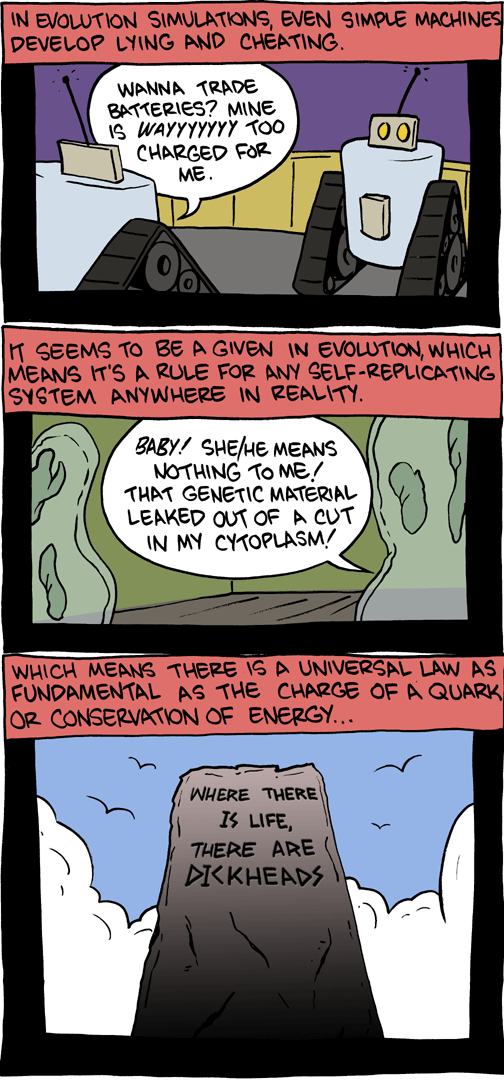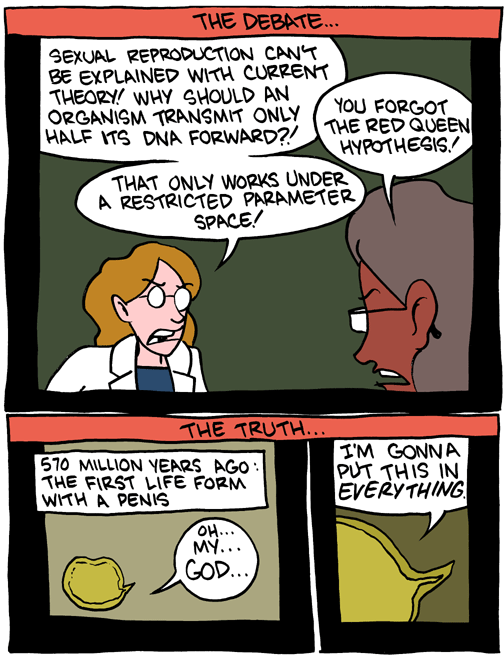From the consistently wonderful SMBC: Hilarious, but it’s also real research. Read more about how robots evolve to lie here. And if you want some biological examples, I’ve discussed dishonest signaling in deer and fiddler crabs in a previous post.
Hilarious, but it’s also real research. Read more about how robots evolve to lie here. And if you want some biological examples, I’ve discussed dishonest signaling in deer and fiddler crabs in a previous post.
This is post 16 of 49 of Blogathon. Pledge a donation to the Secular Student Alliance here.






